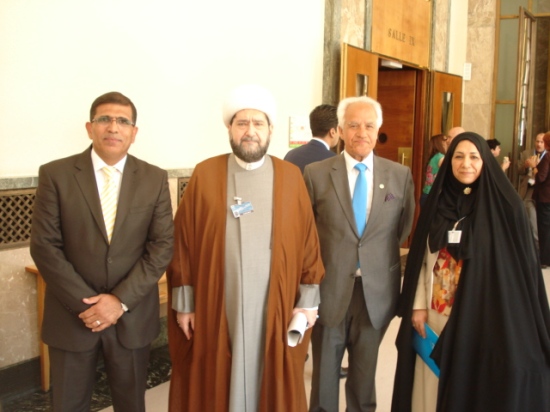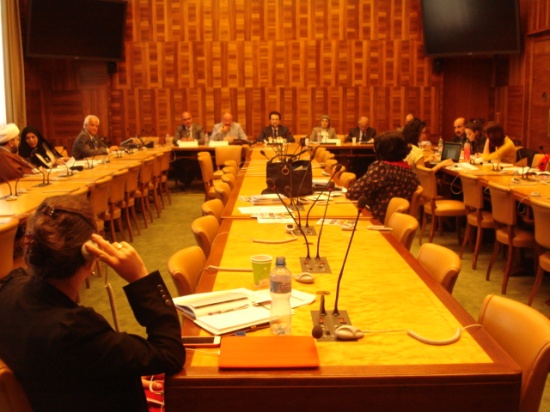niqash | Mustafa Habib |
Baghdad | 27.06.2013
Shortly after provincial elections that saw
Iraq’s PM lose sway in many parts of the country, parliament has struck another
blow against their controversial leader. Laws giving provincial authorities
more power and more money than ever were passed late last week.
Last weekend, a new law passed by the Iraqi Parliament in
Baghdad, granted the provincial authorities more power than they have ever had
before. This momentous move is seen as another step toward decentralization and
a move away from the centralized power that current Prime Minister Nouri
al-Maliki has been pushing for.
Up until now what provincial governments can do has been
regulated by Iraq’s Law 21, passed in 2008 and also known as the Provincial Powers Law.
Last week, a series of new amendments were made to this law.
“These new powers given to the provinces will entrench the
principle of decentralization in Iraq,” Kurdish MP Mohammed Kayani, head of the
Regions and Provinces Committee in Parliament, told NIQASH; Kayani is a member
of Iraqi Kurdistan’s opposition Change movement. “The law gives huge
administrative and financial powers to local governments - including the
appointment, supervision and punishment of senior officials. In addition, it
gradually transfers the powers of seven service provision ministries [in
Baghdad] to local governments over a period of two years.”
The new amendments to the law gave provinces that are not
semi-autonomous regions like Iraqi Kurdistan a host of new political, economic
and security-related powers. Provincial authorities may now make more far
reaching decisions in these areas without any interference from the central
government in Baghdad.
“This is a political agreement between Sunni Muslims,
Shiite Muslims and Kurdish politicians,” Ziad Ahmad, a local political analyst,
told NIQASH. “They are united in their opposition to al-Maliki’s policies.
Anti-government demonstrations in the west of the country have also had an
impact on this topic. All of these were reasons behind the passing of this
law.”
Ahmad says that provincial authorities now have more
serious responsibilities. He also believes they will require professional
advice from outside their own regions in order to succeed.
But in fact a lot of these ideas are not altogether new.
The provinces were already given broad powers in the 2005 version of the Iraqi Constitution.
Articles 111 through 117 give Iraq’s provincial authorities both economic and
security-related power. Up until these amendments were passed though, local
authorities felt they were constrained by those ruling in Baghdad. Recently
especially al-Maliki has been accused of trying to strengthen Baghdad’s
authority and his own.
However now local governments are able to choose their own
judiciary and their own heads of security. The new laws also give them the
power to deploy the Iraqi army inside and outside major cities; Baghdad is also
obligated to consult with the local governor, should they wish to deploy the
army in their province. In fact the amendment, Article 14, says “the governor
shall have direct authority over all the apparatuses operating in the province
which are tasked with security and with maintaining public order”.
“Security forces coming from Baghdad have always refused
to inform the governor’s office here of their activities,” Ninawa’s last
governor, Atheel al-Nujaifi, who looks likely to return to the post after the
recent elections, told NIQASH. Al-Nujaifi heads a troubled province where a
variety of different military forces hold power. “The Iraqi government has
dealt with the provinces in a dictatorial way and it was ignoring the
Constitution.”
The new amendments also look likely to make some of the
provinces far wealthier.
Another one of the amendments has this to say: “the
provincial council is the legislative and regulatory authority in the province.
It has the right to issue domestic legislation so as to enable it to administer
the affairs of the province in accordance with the principle of administrative
decentralization. Provincial councils shall have a legal personality and
financial independence.”
For example, the amendments will increase the percentage
of money those provinces producing oil get. Article 44 of the Iraqi
Constitution stipulates that, besides part of the federal budget, fees or fines
and tax revenues, each province gets a percentage from any barrel of oil that
is either produced or refined there; a similar stipulation exists regarding the
production of natural gas.
“In Basra, this law means that province should get more
than US$10 million a day due to oil extraction there – as well as US$1 billion
from the federal budget,” former MP, judge and legal expert, Wael Abdul-Latif,
told NIQASH.
Basra will get the biggest budget it has ever had in
contemporary history, Abdul-Latif noted. “And with that, it should be able to
solve a lot of its own problems. The money it gets will almost be equal to the
budget of a small country like Jordan.”
Of course, not everybody is happy about the changes to the
Provincial Powers Law. The political bloc currently ruling the country, led by
al-Maliki, says it intends to challenge the amendments in Iraq’s highest court.
They say the amendments deprive the federal government of important powers it
should have.
State of Law MPs even boycotted the voting session during
which the amendments were passed. However all the MPs that remained in
Parliament supported the law.
The timing of the new law is also interesting, coming as
it did shortly after provincial elections that saw al-Maliki and his supporters
lose a lot of power in some provinces.
But as Kurdish MP, Hassan Jihad, who supports the
amendments as an expression of Iraqi federalism, said: “any party that votes
against this law will most certainly be accused of being a supporter of a
centralist and totalitarian system.” Then again, those charges are nothing new
to al-Maliki.

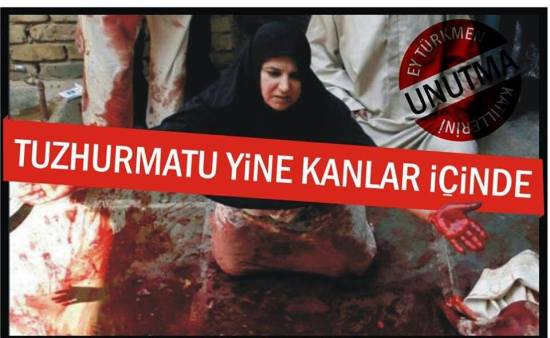




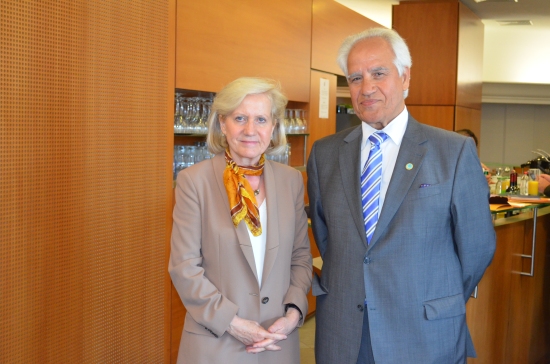
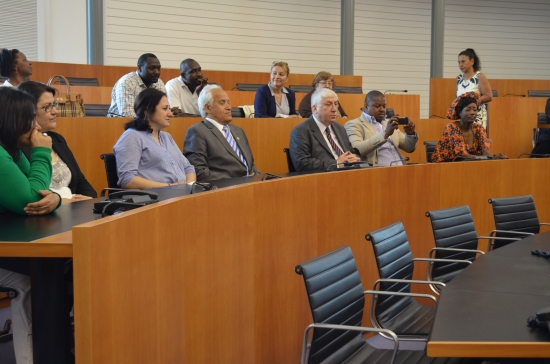

 North Iraq (AINA) -- Armed Kurdish men, mostly belonging to the Zebari tribe, attacked the Assyrian village of Rabatki on Thursday at 18:00 local time in Northern Iraq. The motive behind the attack was to forcefully claim parts of the village.
North Iraq (AINA) -- Armed Kurdish men, mostly belonging to the Zebari tribe, attacked the Assyrian village of Rabatki on Thursday at 18:00 local time in Northern Iraq. The motive behind the attack was to forcefully claim parts of the village.